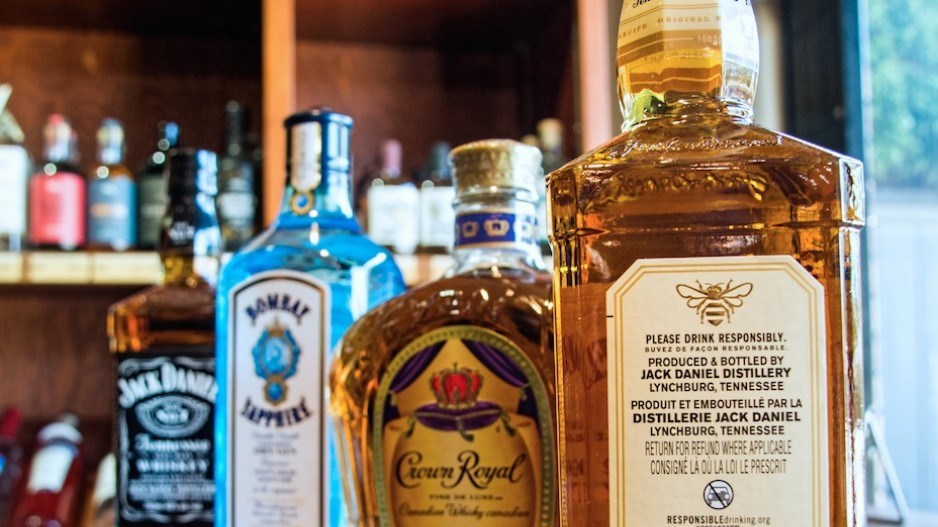A provincial health officer’s pleas to have the B.C. government enact strict labelling rules for alcoholic beverage packaging, including warnings about the dangers of drinking to excess, appear to be falling on deaf ears.
“We’ve got no plans currently around warning labels [on alcoholic beverages],” B.C. Attorney General David Eby told Business in Vancouver.
Eby in late June visited Whitehorse, Yukon, where he learned of a pilot project underway at one liquor store, where staff are manually putting bright yellow warning stickers on bottles.
“We’re interested to see if the labels have any impact [on sales] and also to see the federal government’s opinion, based on that,” Eby said. “It is in part a federally funded study.”
Eby said he does not see value in requiring liquor retailers in B.C. to manually place warning stickers on products, which would represent a “significant cost” to those businesses.
However, changes to labelling on alcoholic beverages is something that Island Health chief medical health officer Richard Stanwick is lobbying for.
He wants either the B.C. or federal government to require that one-third of the space on labels on alcoholic beverage containers be reserved for warnings about the dangers of drinking, and information such as how many standard drinks the beverage contains and how many standard drinks can be consumed before being too drunk to drive.
Stanwick also wants manufacturers to be required to post calorie counts on alcoholic beverage containers and to list all ingredients.
“Coca-Cola [NYSE:KO] still manages to put ingredients on the label without giving away their recipe,” he said.
Stanwick said alcohol is “enjoying a bit of a free ride” because the federal government does not require the same ingredient lists for alcoholic beverages as it does for fruit juices and other non-alcoholic drinks.
Federal Health Minister Ginette Petitpas Taylor said in March that representatives in her ministry are meeting with provincial and territorial counterparts to discuss advertising, marketing and labelling on alcoholic beverage containers.
A report commissioned by the B.C. government and released in late June by the province’s business technical advisory panel on liquor policy noted that, among panel members, there was “no support for the idea of creating labels on alcohol products that would relate to minimum-drinking guidelines or health issues.”
To read more about that report, click here.
Panel chair Mark Hicken told BIV that the lack of support by the panel could be because its membership was drawn from the business community, as opposed to health-oriented organizations. •




